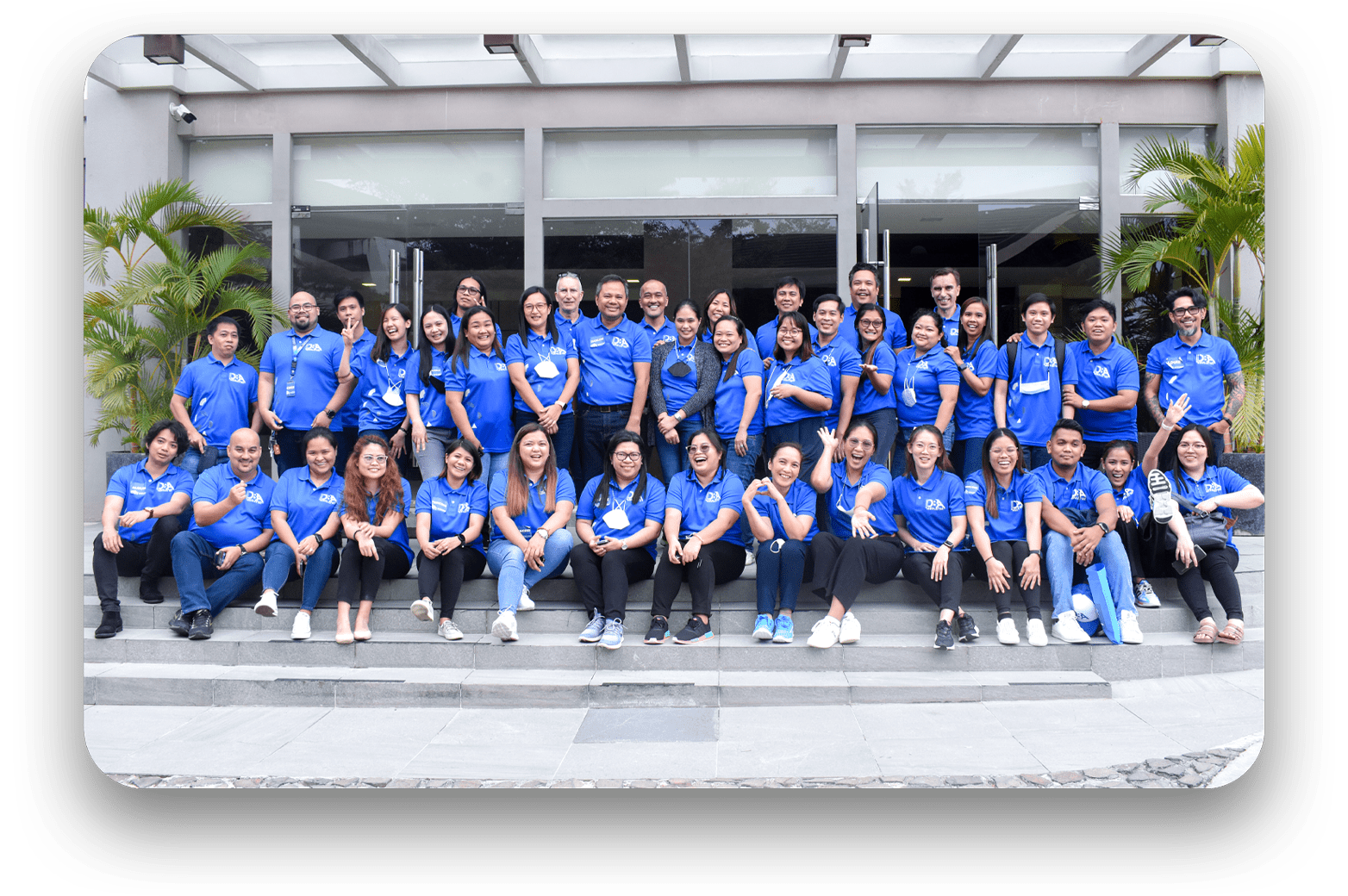Living in the digital age means we get to see advances in technology almost every day. Whether it’s an application or a gadget, there is always something new to try daily.
However, as we achieve greater heights in technological innovations, we are also seeing more sophisticated cyber threats being deployed. In fact, around 81% of businesses had a cloud security incident over the past 12-months. With increasing cybersecurity breaches, a proactive approach is critical in preparing your business for threats. But, before you can implement proactive cybersecurity measures, you must first develop the mindset for it. To help you, here are our 5 Tips for a Proactive Cybersecurity Mindset.
What Is Proactive Cybersecurity
Most businesses have a reactive cybersecurity in place to defend their environment from threats, attacks, or breaches. With reactive cybersecurity, the goal is to monitor and discover anomalies and limit the damage of an attack to your environment. However, it can take up to an average of nine (9) months before a breach can be identified and contained.
Meanwhile, a proactive cybersecurity focuses on having a strong defensive position to prevent threats, attacks, or breaches. It is a posture of readiness and enables your IT team to prepare for threats.
As we enjoy the comforts that the digital age brings, cyber threat actors are becoming more aggressive with their attacks. Unfortunately, SMBs suffer more than large businesses when hit with a highly sophisticated and elaborate attack.
Tips for Developing a Proactive Cybersecurity Mindset
Ransomware-as-a-services (RaaS) has now become a lucrative business—making malware easily available to anyone who has enough resources. Hence, it is crucial for businesses to have a proactive cybersecurity mindset to avoid and mitigate the damage of cyberattacks.
1. Identify your priorities
Before you can implement a proactive cybersecurity approach, you have to first know what you are protecting. To do this, perform a comprehensive risk assessment and identify all your assets—e.g., devices, people, data, processes.
An inventory of your devices, software and applications will also determine your infrastructure’s risk tolerance—e.g., servers, legacy systems, end points. Moreover, an inventory will enable you to find controls already in place, as well as critical security flaws. Identifying the information and applications your employees are using to complete their tasks is also important in keeping your data safe.
In addition, knowing which employees access confidential data allows you to determine who needs additional layers of security protocols, encryption and authentication. Moreover, you can set access levels for each devise and staff to prevent unwanted access and loss of data.
2. Know your weaknesses
The cybersecurity landscape is evolving—what worked a few months or even weeks ago, might no longer work today. Hence, your IT team must stay on top of current trends to ensure your infrastructure is adaptable and agile. Knowing new attack vectors also helps your IT team keep your software, policies, protocols, and patches up to date.
Moreover, continuous real-time monitoring of your network enables your IT team to detect early signs of an attack. A routine scan for vulnerabilities also allows your IT team to find weaknesses in your system before threat actors can exploit them. In addition, one of the best ways to ensure your system can withstand an attack is to test it regularly.
Weak configurations, exposed web services and vulnerable software are the top three most exploitable perimeter exposures hackers often find. Employing the expertise of an ethical hacker for penetration testing can also identify exploitable vulnerabilities and enable you to set metrics. Thus, you can make the necessary improvements and modifications to your process and maintain a secure environment.
A proactive IT team making simulated attacks on employees will also reinforce how behaviours within your organisation can be strengthened. It also allows for further training of staff that may potentially open up a weakness in your IT security. More importantly, random internal simulated attacks are a great way for a business to stay robust.

3. Empower your employees
More than the applications and tools you use, cybersecurity is all about people. Cyber threat actors are taking advantage of human error to access sensitive data from individuals and businesses. In fact, 95% cybersecurity issues were caused by human error.
Educating your employees about access controls, credentials and basic cybersecurity hygiene also helps them protect themselves from possible attacks. The Cybersecurity & Infrastructure Security Agency (CISA) recommends practicing the following basic cyber hygiene to reduce the risk of threats:
- Think before you click
- Update your software
- Have good, strong passwords
- Enable multi-factor authentication (MFA)
Instead of having a weak link, turn your staff and senior management into a cyber-conscious team. Give them information about the top security threats, like phishing and ransomware, and how they can recognise and differentiate them. Moreover, implement a monitoring and response plan to let them know how to report an incident and what they should do next.
4. Maintain your compliance
The digital space is a fast-paced world and cybersecurity compliance needs to keep up with the ever-evolving landscape. Hence, regulations relating to data confidentiality, integrity and availability are also changing to address the growing global security requirements.
However, cybersecurity compliance can be quite complex and there are distinct requirements for each industry and sector. Moreover, there can be different regulations and laws for each state, territory and country. Hence, businesses often find themselves overwhelmed with the myriad of controls needed and the cost of completing the requirements.
Though difficult, meeting cybersecurity compliance can ensure your business has the right system, policies, procedures and technical and process controls in place. Moreover, it can guarantee better security and help you avoid hefty penalties for data breaches and costly investigations.
Maintaining cybersecurity compliance can boost your organisation's reliability and credibility, build trust and improve brand reputation. Moreover, a proactive cybersecurity mindset can significantly boost your organisation's cyber resilience.
5. Outsource your Cybersecurity
Unlike their larger counterpart, small- and medium-sized businesses (SMBs) are more vulnerable to cybersecurity threats. In fact, SMBs are three times more likely to be targeted by cyber threat actors and suffer greater damage than large businesses. In the US, around 63% of SMBs lack in-house cybersecurity skills to protect their business from breaches.
Outsourcing your cybersecurity enables your business to implement security solutions that meet your needs at a lower cost. It also gives you access to an experienced Managed Service Provider (MSP) who can fill the gaps in your IT infrastructure.
Outsourcing also enables your business to access the most advance technology available and optimise your existing processes and workflows. More importantly, it allows you to navigate the complex cybersecurity regulatory requirements and offer a higher level of data security. Hence, your business can gain a competitive advantage and have a better position in your industry.

Build a culture of security with a proactive cybersecurity mindset
A breach can and will happen at any time. Fortunately, proactive cybersecurity encompasses all your security strategies, including your reactive measures. Moreover, it can ensure business continuity and help your business build cyber resilience.
Cybersecurity can be quite costly, but it is an investment all businesses must prioritise to secure not only their data, but also their clients’. However, it is not a set-it-and-forget-it process, and requires multiple layers of security controls, real-time monitoring and adaptability to change.
DBA has a strong technology focus and is recognised for providing innovative and technology-driven processes—including cybersecurity. Our in-house IT capabilities allow us to utilise the latest technologies that are essential to implementing a proactive cybersecurity approach.
We also offer an industry leading proactive Managed IT Services program to give you the benefits of an MSP relationship. Our team can simplify your IT architecture and infrastructure, whilst removing the expense of doing it all in-house.
Moreover, we can provide your employees with the necessary training to help you develop a proactive cybersecurity mindset. We will guide and support your business in building the foundation for a culture of security and moving towards cyber resilience.

Maann Sagun, MDC, DMP

Maann Sagun, MDC, DMP
Share


DBA’s Global Head of Sales and Marketing, Jason Ryan recently attended the Intrigue MAdVerse Conference in Melbourne, where key insights around the evolving concept of “value” were shared. His takeaway: value is not just a concept—it’s an experience that is deeply human. At DBA, we are committed to embracing innovation while staying rooted in empathy, creativity, and connection to build a future where technology and humanity thrive together. Read more of his insight here!

Jason Ryan CFP, DBA’s Global Head of Sales and Marketing, attended the Symphony Conference in February, hosted by Fin365, Principals Community, and Netwealth. The event brought together industry leaders and professionals to discuss the latest trends and strategies in the financial services sector.






© 2024 DBA. All Rights Reserved.





